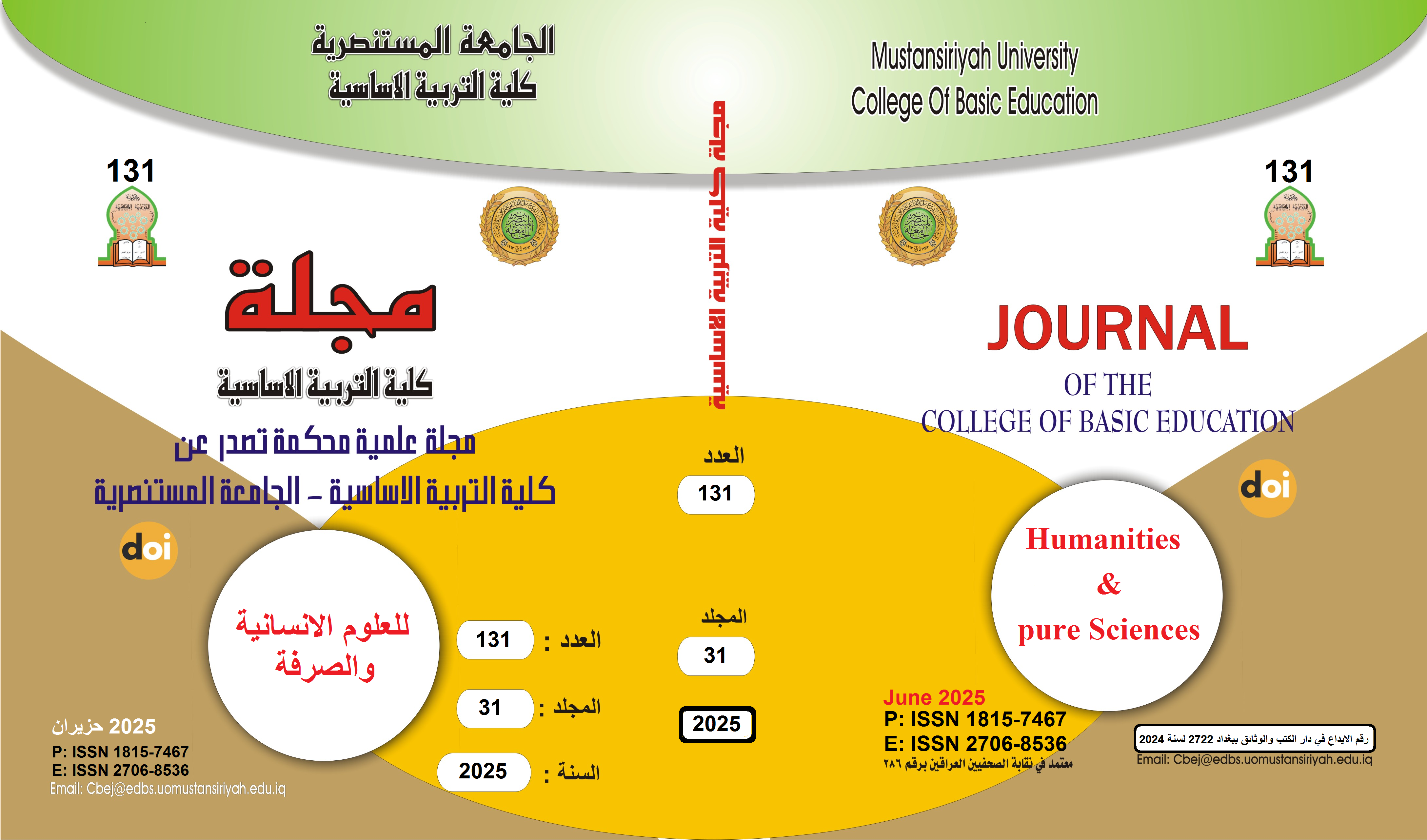القوة الناعمة واثرها في اللغة العربية
Main Article Content
Abstract
In this research paper, we will look at the most prominent soft power factors of the Arabic language. Before that, we defined soft power and mentioned the soft power resources, including: (the cultural aspect, the political aspect, and the scientific aspect).
Then we mentioned the most important factors of the soft power of the Arabic language, and we divided them into two parts:
1- Subjective factors (from within the language), including: the phonetic factor, accuracy of expression, lexical breadth, and vocabulary richness.
Factors that are not subjective, meaning they are not from within the language, including:
- Regarding the religious aspect, Arabic is the language of the Islamic religion, and a Muslim, regardless of his language, must recite some surahs in Arabic in prayer, for example.
- Tolerance and acceptance of the other. Only by his deep faith was the Arab able to be the most eloquent ambassador and advocate of his religion, with his noble character and good behavior. Through his sacrifice to his religion, he won a large number that no invitation, no matter how great it was, could win someone like him.
Article Details

This work is licensed under a Creative Commons Attribution-ShareAlike 4.0 International License.
